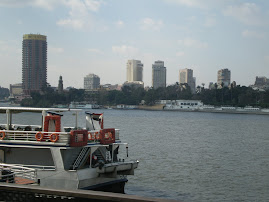
Many times I've been looking for information through the web in order to retrieve useful material to complete my scholastic and academic tasks but very rarely I've been checking the reliability of the sources. I'm a very lazy person and I have to admit that looking at the links Sarah put in e-tivity8 I went a little bit crazy! There were so many things to read! However I found a lot of useful tips I had never thought of before. I didn't know anything about meta search-engines like Mamma which helps you collect the returns of other search-engines, so that you can have a more complete view of what the web offers. As regards essay banks, I came across some of these material collections many times but I never dared to use them for my purposes because you never know who wrote those things and, as it is pointed out in the University of Essex site, essays banks are a "short-cut to plagiarism". I always prefer to complete these kind of tasks on my own and not thanks to someone else.
After reading "Practical steps in evaluating internet resources" I also realised that the publishing body is important. A site's affiliations and sponsors, as well as the possibility to send messages to the webmaster, are fundamental to judge the officiality of a web page. Another thing I never do is to check the authorship of a certain document: it never occurs to me to search authors' reliability with a search-engine like Altavista. So I tried to put in the name of Bruce Harley, who is the person who maintains the San Diego state university site and the first return it gave me was his personal home page where there are all the necessary information to contact him.
I think that all these tips help us not to run into bad and useless information and materials and if at the beginning they seem to be time demanding they are steps that have to be taken if we want our works to be valuable.
I think that all these tips help us not to run into bad and useless information and materials and if at the beginning they seem to be time demanding they are steps that have to be taken if we want our works to be valuable.





4 commenti:
Hi Giovanna,
when you mentioned your laziness I couldn't help smiling: I have to admit that I am a bit lazy too and this weak point of mine induces me to "skip" many of the tips pointed out in the article! Most of times our "bad behaviour" is due to the fact that we don't have time enough to make our research as it should be done...By the way, it is very important to be aware of the steps that are to be followed in the evaluation of sources: we will be asked to scan the Web to develop our master thesis and we can't run the risk of choosing irrelevant and groundless information just because of our indolence!:-)
You talked about the importance of the publishing body as well: as in the case of podcasts, the fact that the website we chose as a potential source is held by someone you can contact is certainly a way to make us sure of its reliability. As you did yourself, the visitor can try to look for some more news about the administrators to check if their website is a good starting point for his/her research.
Hard times for lazy people like you and me...:-)
Cheers,
Elena
Hi, Giovanna!
Are you a lazy girl? Well, don't worry...I'm this kind of girl too!My laziness comes out expecially when I have to write...I don't like writing at all, so searching for reliable sources in the Web is a torment!I agree with Elena: we don't have time enough and
searching for pieces of information from the Web is very time demanding, isn't it?
However, we have to learn how to judge the source we find in the Web, because we always need to write something, above all for academic purposes. Like you, I never heard of specialized search engines, like Mamma of Google books. I tried to use them and I must admit they're quite useful! In your post, you talked about a search engine called Altavista. I never thought to check authors' reliability...I'll use this search engine as soon as possible!
See you soon,
Martina
Hi Giovanna!
Today in class we talked about the advantages and disadvantages of both paper and online sources.. Well, I think one the greatest disadvantages of online materials is that it seems quite hard to check for their reliability. Thus, being aware of some criteria on how to judge our sources is definetely useful to prevent our academic writing from being full of rubbish information! As you said, one of these criteria is to check the author's reliability: to look for information about the person who published a specific material on the Web is essential to give more value to your own research and work. What's more, I think it could be even nice to spy on someone else's life, don't you? I mean, if you know something about the author of a website or of an article (his/her career, for example), you'll be more interested when reading his/her work, won't you!??
As for specific search engines like Altavista or Google Scholar, I think they're great tools which help you narrow down your research: in this way, they prevent you from wasting a lot of time filtering millions of data and websites! Like Martina, I have never used Altavista, but I'll do it as soon as possible..
Have a nice day!
Marta
Hi Giovanna!
I agree with Marta on the fact that one of the biggest faults of online material is the lack of reliability. So, even if it takes some of our precious time, doing some sort of selection is essential, and I think that both "Mamma" and "Altavista" can help us in doing it in a faster and more efficient way. I think that the final part of the urls (.edu, org and so on) can be another rapid way of narrow down the material too. But, in the end, we have to resign to read through them carefully and learn to be critical.
Bye!
See you on Wednesday!
Sara
Posta un commento